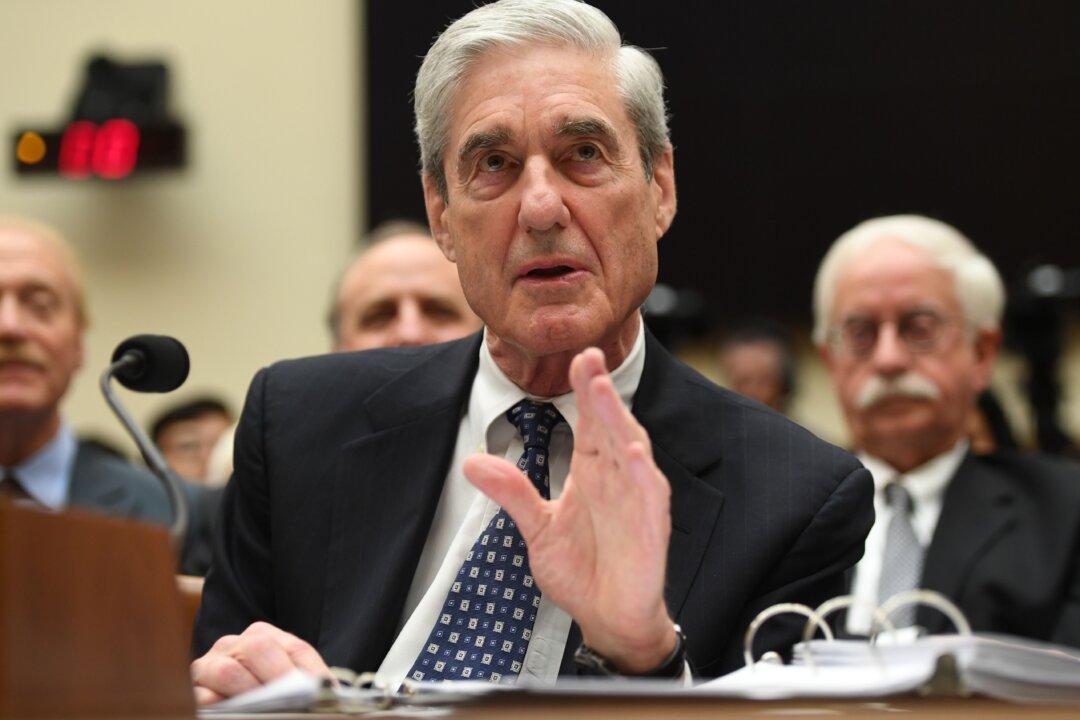The Supreme Court on Friday has granted a request to drop a scheduled hearing over whether a House Committee has the right to access grand jury materials from former special counsel Robert Mueller’s Russia investigation.
The Democrat-led House Judiciary Committee has been seeking access to grand jury information redacted from Mueller’s 448-page report, including transcripts or exhibits referenced in the redactions. In July 2019, the panel filed an application for a court order to authorize the release of certain grand jury materials related to the Mueller report.




